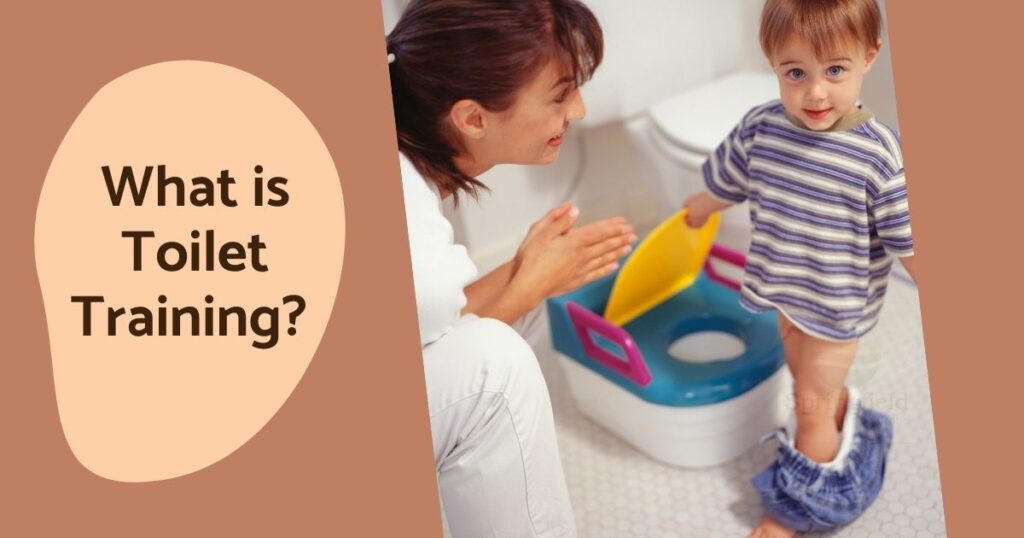Toilet training, or potty training as it is called popularly, mostly refers to training the kids to use the toilet. However, it is a forgotten fact that adults too need toilet training, albeit for different reasons.
Toilet Training for Kids
Typically here the toilet training is introducing a whole new world of using the toilet to pee or poo instead of eliminating the excreta in the diaper or the cloth or mat on which the toddler is placed. Here it is important to watch your child for signs of readiness, like clutching his or her diaper, pulling down the diapers or underpants, keeping a diaper dry for 2 hours or more, understanding and using words about using the potty, making the connection between the urge to pee or poop and using the potty, etc. These signs are what we need to look for in a child and determine if they are ready for proper toilet training.
Why do adults need Toilet Training?
Adults typically need toilet training for two medical issues, one is Urinary Incontinence and the other is Fecal Incontinence. Other than this, there is one major reason why every adult will need Toilet Training. It is about maintaining a regular time to clean the bowel which can go a long way in maintaining a healthy bowel. Let us see this one by one.
Urinary Incontinence
Stress, urge and overflow incontinence are the three important reasons for Urinary incontinence.
Stress incontinence is involuntary urinating when there is pressure on the abdomen during coughing. Urge incontinence happens when the urge to urinate cannot be controlled. Overflow incontinence is the constant uncontrolled excretion of small amounts of urine. Urinary tract infections, stones, cancers of the bladder, prostate condition in men, obstructive sleep apnea, diabetes, are some of the reasons why Urinary incontinence can occur.
Fecal Incontinence
Fecal incontinence most commonly affects women and older adults. It is something that occurs due to aging. This condition can be caused by a number of conditions like muscle damage to the anal sphincter, muscle damage to the rectum affecting its ability to stretch nerve damage, rectal cancer, etc. Sometimes piles can also result in fecal incontinence if the overgrown external piles do not allow the anal sphincter to completely close.
The common thread between Urinary and Fecal Incontinence is dementia and Alzheimer’s disease. When either of the condition is present and if they progress to a certain point, a patient can subconsciously “forget” the toilet training he or she had had in their early childhood and as a result, urinary or fecal incontinence can occur.
For Urinary Incontinence, bladder training is recommended where the patient is toilet trained to resist the urge to urinate until a scheduled time. By this method, the amount of time between scheduled trips to the toilet is increased gradually. So here typically toilet training is aimed at keeping in check the urinary incontinence by increasing the strength of sphincter muscles through exercises.
For Fecal Incontinence, toilet training for adults is challenging as this is normally the result of damage to various rectal muscles. Kegel exercises can be very helpful to promote bowel training. Setting a specific time for visiting the toilet can be helpful for those suffering from fecal incontinence. However, for fecal incontinence caused by severe muscle damage, it needs to be understood that toilet training will not be helpful and they might require surgery to correct the condition.
General Toilet Training for adults and children over 5 years
Bowel movement has to be made a largely regular routine typically in the morning. Traditional wisdom says that cleaning the bowel every morning is good for health. But as a broad rule, pooping anywhere from three times a day to three times a week is normal. Most people poop about the same number of times a day and at a similar time of day. Getting to this routine is the key. Off late children playing games and elders with busy unhealthy lifestyle forget to poop in their routine and this can cause a lot of health issues. That is why diligent toilet training is necessary for adults and older children who have erratic bowel movements. Sitting deliberately in the toilet and attempting to poop at a certain time can train our bowel gradually to follow a routine. So this late stage toilet training assumes a lot of significance.
